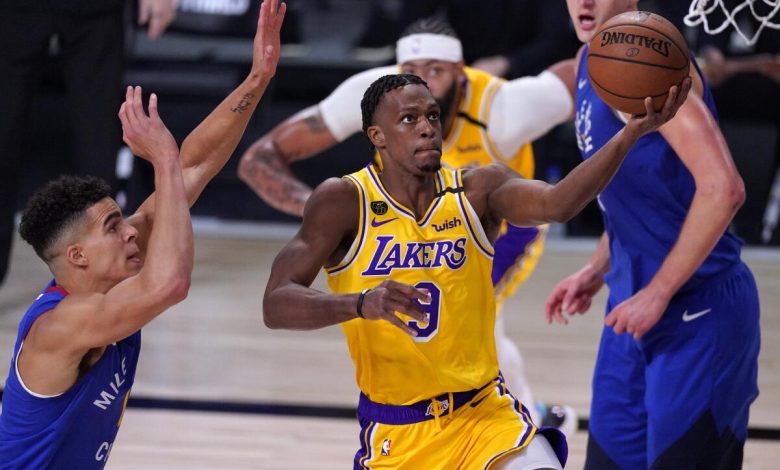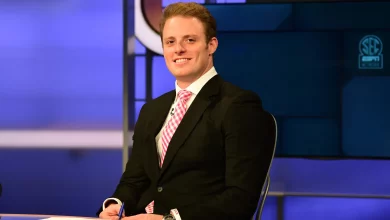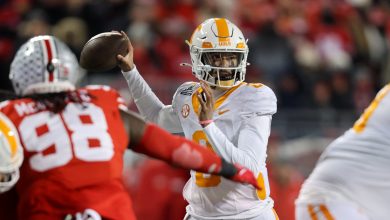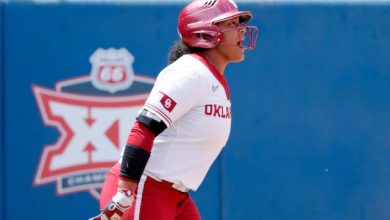How is Rajon Rondo, the first person to win a ring out of the 2020 Lakers squad, not in the rotation during Game 5 of the 2020 NBA Finals at the Bubble?

When we think of the 2020 Los Angeles Lakers’ run to the NBA Championship, there are a few names that instantly come to mind: LeBron James, Anthony Davis, and of course, the ever-reliable Rajon Rondo. But for those closely watching Game 5 of the NBA Finals inside the Orlando Bubble, a curious thing happened—Rondo, known as “Playoff Rondo” for his high-IQ and clutch playoff performances, barely made a dent in the rotation during one of the most pivotal games of the series. It raised eyebrows. How could the floor general—arguably the third-most vital player on that team—be largely absent?
Let’s break it down.
Setting the Scene: 2020, the Bubble, and the Stakes
The 2020 NBA Finals were unlike anything before. Played in the NBA’s Disney World Bubble due to the COVID-19 pandemic, the Lakers found themselves battling the Miami Heat in a tense six-game series. Going into Game 5, the Lakers were up 3–1, one win away from capturing the franchise’s 17th championship and delivering on the promise LeBron made when he came to L.A.
Rajon Rondo had already made headlines throughout the playoffs. After returning from a hand injury and a brief bubble exit due to family reasons, he revitalized the Lakers’ second unit and proved essential in orchestrating the offense when LeBron rested. In fact, his performances in Games 2 and 3 of the Finals were vintage Rondo—sharp passes, timely steals, and momentum-changing baskets.
So when Game 5 tipped off and Rondo didn’t see meaningful minutes until later stretches, fans and analysts were left puzzled.
The Stats: A Discreet Night
In Game 5, Rondo played just 18 minutes, scoring 4 points on 2-of-6 shooting with 5 rebounds and no assists. For a player known for creating plays and facilitating the offense, it was a quiet outing. Frank Vogel, the Lakers’ head coach, went with more minutes for Kentavious Caldwell-Pope, Alex Caruso, and even Markeiff Morris down the stretch.
Despite being a floor general, Rondo’s minutes dipped significantly from his impactful Game 2 and 3 outings. For a player with his pedigree and performance in the playoffs, especially one who had already won a title in 2008 with the Boston Celtics, it begged the question—why wasn’t he trusted in the biggest moment of the series?
Tactical Adjustments: Miami’s Game Plan
Give credit where it’s due: Miami Heat head coach Erik Spoelstra is a mastermind. In Game 5, Spoelstra made subtle adjustments that aimed to neutralize Rondo’s influence.
One specific strategy was to sag off Rondo on offense, daring him to shoot, which compromised spacing. With Miami going small at times and placing Jimmy Butler in a pseudo point-forward role, they matched Rondo’s vision and outmaneuvered him in transition. Defensively, Miami put pressure on the Lakers’ passing lanes and baited them into half-court sets—where Rondo’s lack of shooting became more of a liability.
That meant Vogel had to lean into floor spacing and quicker defensive switches, especially since LeBron was in takeover mode (finishing with 40 points). In these scenarios, Vogel often replaced Rondo with shooters like Danny Green and Caldwell-Pope, or defenders like Caruso.
LeBron’s Ball Dominance
Game 5 was also one of those nights where LeBron took control of the offense and didn’t relinquish it. With the title within reach, LeBron went full throttle, scoring at will and facilitating at a high level. When LeBron enters that mode, the need for another primary ballhandler like Rondo diminishes.
That shift allowed Vogel to prioritize spacing, defensive versatility, and catch-and-shoot players to surround LeBron. Rondo, while brilliant in his own right, tends to be at his best with the ball in his hands—something LeBron was clearly not willing to give up that night, nor should he have.
Matchup Trouble and Defensive Concerns
Defensively, Game 5 exposed some limitations in Rondo’s game. The Heat had multiple guard-oriented offensive sets that used screens to switch onto Rondo. Duncan Robinson, for example, caught fire from deep, and the Lakers struggled to chase him off screens. Rondo, not being the quickest lateral mover at that point in his career, had difficulty navigating through Miami’s off-ball actions.
Vogel opted for more mobile defenders like Caruso and KCP to chase Robinson and Tyler Herro. It was less about Rondo’s ability and more about strategic matchup decisions.
The Bigger Picture: Presence Beyond the Box Score
Even if he wasn’t on the floor for extended periods in Game 5, Rondo’s value can’t be understated. He served as a coach on the bench, directing younger players, offering insight during timeouts, and helping adjust defensive sets mid-game. Multiple reports from inside the Bubble noted Rondo’s intense film sessions, often watching hours of game tape and giving detailed breakdowns to his teammates.
That’s leadership you can’t quantify on a box score.
Game 6 Redemption: Rondo Shows Up When It Matters Most
If anyone doubted Rondo’s role after Game 5, they didn’t doubt for long.
In Game 6, with the title on the line, Rondo returned to form with one of his best games of the season. He put up 19 points on an efficient 8-of-11 shooting, added 4 assists, and was a +18 in 30 minutes of play. The Lakers blew out the Heat and captured the championship.
That performance proved what many had long known: Rajon Rondo doesn’t disappear—he calculates. If the moment doesn’t call for him, he’ll observe. And when it’s time? He delivers.
A Champion’s Mindset
With that title, Rondo became the first player from that 2020 Lakers squad to earn his second ring, having already won with Boston. For a veteran considered washed by some when he joined the Lakers, his role in the playoffs was nothing short of remarkable.
His ability to accept a reduced role when needed and amplify his presence when called upon is a testament to his basketball IQ and humility—traits that make him one of the most respected minds in the league.
Legacy Cemented
Rondo’s Game 5 absence wasn’t a slight—it was a strategic footnote in a journey that ended with him raising another Larry O’Brien trophy. He may not have been in the spotlight that night, but like the best chess players, he was thinking several moves ahead.
And in Game 6, he made his final move—checkmate.









